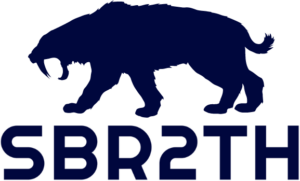In the ever-evolving world of technology, the current landscape of hiring in tech companies is dynamic and influenced by many factors. Tech firms have traditionally been at the forefront of talent acquisition, but recent events have introduced new complexities.
Global events have significantly impacted the hiring practices of tech companies. The COVID-19 pandemic, geopolitical tensions, and economic fluctuations have created a challenging environment for workforce planning. Understanding how these events have shaped hiring practices is crucial for job seekers and tech industry leaders.
Current Challenges
The pandemic has reshaped the way tech companies operate. With remote work becoming the norm, adapting to a new work-life balance paradigm is necessary. The challenges of remote work, such as maintaining team cohesion and cybersecurity, have also affected hiring strategies. Remote work dynamics have disrupted traditional office-centric hiring models. Companies are now seeking talent from a global pool, leading to increased competition for tech roles. Balancing remote and in-person work is a challenge that tech companies navigate as they hire new employees.
Furthermore, the types of skills in demand in the tech industry constantly evolve. As technologies like AI, cybersecurity, and data science advance, tech companies adjust their hiring priorities. Keeping up with these skill shifts and aligning one’s expertise with industry demands is essential for job seekers.
The Resilience of Tech
One notable trait of the tech industry is its resilience in the face of adversity. Tech companies have shown remarkable adaptability during challenging times. They have pivoted to address new market demands, accelerated digital transformation, and continued to innovate even when faced with uncertainty.
As innovation often thrives during times of crisis, tech companies have been at the forefront of developing solutions to address the challenges brought about by global events. Whether it’s creating telemedicine platforms, enhancing remote collaboration tools, or improving e-commerce infrastructure, tech innovation has played a pivotal role in overcoming adversity.
Factors Influencing Hiring
Economic Indicators
Economic indicators have a direct impact on tech hiring. Factors such as GDP growth, inflation rates, and consumer spending influence a company’s financial health and, subsequently, its hiring decisions. Tech companies closely monitor these economic indicators to gauge the timing and scale of their hiring efforts.
Industry-Specific Considerations
Each tech industry sector has unique considerations that affect hiring. For example, the semiconductor industry may be influenced by supply chain disruptions, while the software industry could be more sensitive to changes in consumer behavior. Understanding these industry-specific factors is essential for job seekers looking to align their career goals with market trends.
Government Initiatives
Government initiatives, such as tax incentives, immigration policies, and investment in technology infrastructure, can shape tech hiring. For instance, changes in immigration policies can impact the availability of international talent, while government support for research and development can foster innovation and job creation within the tech sector.
Emerging Technologies
The integration of AI and automation is revolutionizing the tech industry. These technologies are reshaping job roles and creating efficiencies. While they may lead to some job displacement, they also open up opportunities for those with expertise in AI and automation to contribute to innovative solutions and drive industry growth.
The emergence of new technologies leads to a demand for specific skills. Tech companies seek professionals skilled in machine learning, natural language processing, and robotics. Staying updated with these evolving skill sets is essential for individuals aiming to thrive in the tech job market.
Corporate Strategies
Tech companies are constantly seeking ways to optimize costs while maintaining competitiveness. Cost-cutting measures may affect hiring practices, leading to a focus on leaner teams and increased reliance on remote talent. Understanding how companies balance cost optimization with talent acquisition is crucial for job seekers.
Remote work has become a critical aspect of corporate strategies. Tech companies are reevaluating their remote work policies, offering employees greater flexibility. This shift impacts hiring practices, as companies may look for candidates worldwide, widening the talent pool. Job seekers should consider the implications of remote work opportunities and the possibility of working for companies outside their geographic area.
To meet evolving demands, many tech companies are investing in upskilling initiatives. These programs enable current employees to acquire new skills and adapt to changing roles. Job seekers should be aware of these initiatives as they may affect hiring preferences and provide avenues for career growth.
The Role of Startups
Startups play a vital role in driving innovation and creating job opportunities. Monitoring trends within the startup ecosystem can help job seekers identify areas of growth and innovation. Being attuned to breakthrough technologies and rapidly growing sectors within startups can guide career choices and job searches.
Startups have a unique work environment characterized by rapid growth, innovation, and a dynamic culture. When seeking employment with startups, job seekers should showcase their skills and demonstrate adaptability and a willingness to contribute to a fast-paced setting. Understanding the distinctive demands of startups can lead to a successful and fulfilling career in these organizations.
Global Perspectives
Tech hiring varies significantly by region. Tech hubs like Silicon Valley, Bangalore, and Shenzhen have distinct characteristics and demands. Regional variances in cost of living, talent pools, and industry focus can influence job availability and career trajectories.
Tech companies are increasingly engaged in international collaboration for talent acquisition. They form cross-border partnerships and actively recruit talent from around the world. Job seekers should be open to international opportunities and aware of the advantages and challenges of working in a globalized tech workforce, such as exposure to diverse cultures and markets.
Future Projections
Forecasting recruitment trends involves analyzing the current state of the tech job market and making educated predictions about its future trajectory. This can encompass various aspects, such as the rate of job growth, the geographical distribution of tech jobs, and changes in the types of roles in demand. Tech companies can use these forecasts to plan their hiring strategies effectively, ensuring they attract the right talent at the right time. Job seekers can benefit from these forecasts by tailoring their skill sets and job search efforts to align with anticipated trends, increasing their chances of finding rewarding employment.
Conclusion
The tech job market is a dynamic and ever-changing landscape that requires agility, adaptability, and continuous learning. As technology advances, so do opportunities for growth and innovation. Job seekers must stay informed, cultivate in-demand skills, and be open to global possibilities. Tech companies should prioritize strategies that balance cost efficiency with talent acquisition and remain forward-thinking in their approaches.
Navigating the tech job market is an exciting and rewarding journey, and by staying informed, embracing change, and maintaining a forward-looking perspective, both job seekers and tech companies can thrive in this ever-evolving industry. As we look to the future, the tech job market promises new horizons and opportunities for all those ready to seize them.



